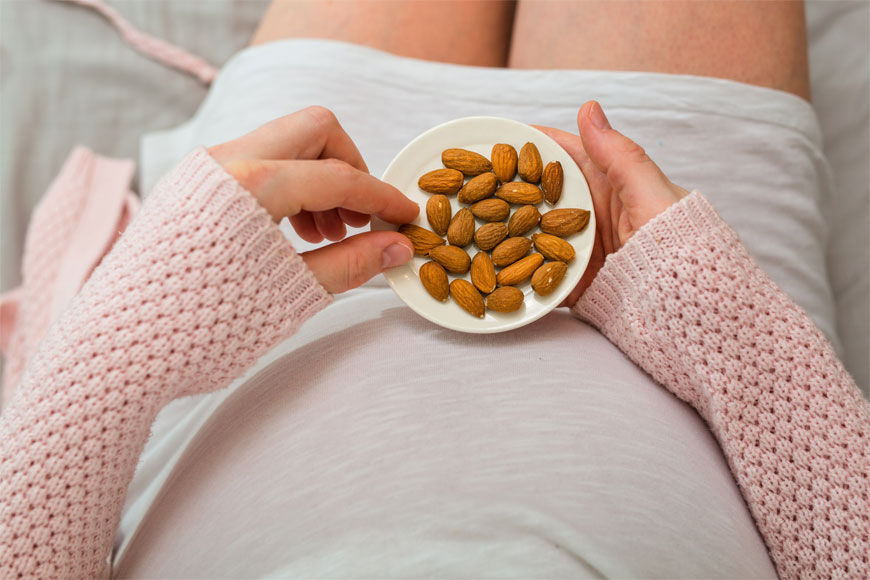Will Eating Nuts During Pregnancy Make my Baby More Intelligent?
A researcher discusses a recent study looking at how consuming nuts while expecting can boost babies’ development
14 July 2019

All Credits: PA
I’ve just found out I’m pregnant – is eating nuts one of the things that could help my baby’s development?
Florence Gignac, a researcher at ISGlobal, Barcelona Institute for Global Health, recently led a study into the effects a mother’s nut consumption can have on her baby.
“First, we know the brain undergoes several complex processes during human gestation, and this constant neurodevelopment to function well is highly dependent on adequate supplies of nutrients,” she says.
“Hence, maternal nutrition appears to be an important factor contributing to adequate foetal neurodevelopment with long-term effects. Therefore, a balanced diet all along the pregnancy is particularly important.
“One type of food that can be considered part of this healthy diet is nuts. In fact, nuts contain a substantial amount of plant protein, vitamins, minerals, but also and most importantly, some of them are rich in fat, particularly omega-3. Omega-3s are essential fatty acids for the formation of the cell membrane and the development of the neurons.

“Nevertheless, it’s important to have in mind that this study was established in Spain in a population with food habits that can differ from another country. In Spain, one of the main nuts consumed are walnuts and they are often served raw. For example, this type of nuts contains higher amounts of omega-3 compared to other types such as peanuts or almonds.
“Considering the variety of nuts with distinct nutritional profiles and different cooking methods (ie. raw, fried, roasted or salted) that may alter the properties in the nuts, pregnant mothers should consult a certified nutritionist who can give personalised recommendations specific to their health characteristics.”
- Tags:
- advice
- Child Development
- Nuts
- Pregnancy

























.png?itok=SvZPqMHH)




.png?itok=uB2ieOR7)












